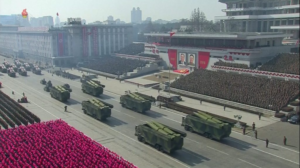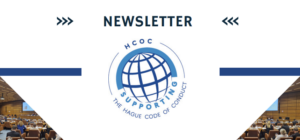Non-proliferation of Missiles: an Alternative Approach
Fondation pour la Recherche Stratégique
Recherche et documents n°02/2011
With a view to liberalizing access to missile technologies, the MTCR would therefore remain a central instrument, since it would continue to regulate sensitive exports. Admittedly, its final binding effects could, in the short term, be further attenuated, turning the regime into a forum for harmonization. However, the strengthening of incentives to join (liberalization of access to technologies) and the still reduced format of the regime, could make it possible to tighten considerably the conditions of access, to trigger a dynamic of compulsory strengthening of export regimes. national regulations and encourage the establishment of more stringent or new inspection regimes (vector load inspections). Thus, the looming anarchic proliferation could be replaced by a structured dissemination beneficial to a majority of States subject to real security constraints and in no way wishing to proliferate.
FEBRUARY 2020
Stéphane Delory
INTRODUCTION
“Le régime a contribué à conduire certains États à abandonner leurs programmes (Brésil, Argentine), permis d’exercer des contraintes réelles sur les exportations des États membres vers des proliférants, voire dans le cas de la Chine, fourni le cadre permettant d’influer sur leur politique d’exportation.”

Les limitations portant sur la diffusion des technologies missiles sont-elles encore pertinentes ? Depuis l’adoption du Régime de Contrôle sur la Technologie des Missiles (Missile Technology Control Regime – MTCR) en 1987, le nombre d’États disposant de technologies balistiques s’est régulièrement accru alors que le développement des missiles de croisière semble s’accélérer.1 Certes, le régime a contribué à conduire certains États à abandonner leurs programmes (Brésil, Argentine), permis d’exercer des contraintes réelles sur les exportations des États membres vers des proliférants, voire dans le cas de la Chine, fourni le cadre permettant d’influer sur leur politique d’exportation. Mais il a montré ses limites, dès lors qu’il était confronté à des phénomènes de prolifération impliquant, par exemple, la violation par des opérateurs privés des législations de contrôle, tel que cela a été le cas pour les transferts (supposés) de SS-N-6 du bureau d’étude russe Makeiev vers la Corée du Nord. Il montre également des faiblesses évidentes face à la prolifération d’États qui ne sont pas parties au régime, telle que poursuivie par la Chine. A cet égard, il apparaît désormais comme un instrument limité, insuffisant pour endiguer un phénomène massif de diffusion de technologies alors que les différentes initiatives prises pour tenter de le compléter se heurtent à l’opposition de la majorité des États où s’avèrent elles aussi trop restreintes.
1 Selon la Missile Defense Agency, « In terms of quantities alone, there were about 4,700 ballistic missiles outside of U.S., Russian, and Chinese inventories in 2003. By 2008, there were some 5 900 », Missile Defense Agency, Fiscal Year (FY) 2010 Budget Estimates Overview, 09-MDA-4527, 27 avril 2009.





